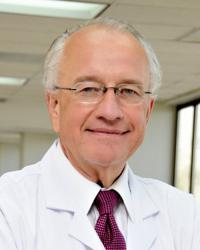Research Lab Results
-
ALS Center
The ALS Center for Cell Therapy and Regeneration Research at Johns Hopkins is committed to identifying the causes of the neurodegenerative disease, amyotrophic lateral sclerosis (ALS), and discovering new and effective treatment options. At the ALS Center, Johns Hopkins researchers work with other investigators, including those at the Robert Packard Center for ALS Research at Johns Hopkins and clinicians within the Johns Hopkins ALS Clinic to aggressively take groundbreaking scientific discoveries and turn them into clinical applications that will improve the quality of life of those diagnosed with ALS. -
J. Marie Hardwick Laboratory
Our research is focused on understanding the basic mechanisms of programmed cell death in disease pathogenesis. Billions of cells die per day in the human body. Like cell division and differentiation, cell death is also critical for normal development and maintenance of healthy tissues. Apoptosis and other forms of cell death are required for trimming excess, expired and damaged cells. Therefore, many genetically programmed cell suicide pathways have evolved to promote long-term survival of species from yeast to humans. Defective cell death programs cause disease states. Insufficient cell death underlies human cancer and autoimmune disease, while excessive cell death underlies human neurological disorders and aging. Of particular interest to our group are the mechanisms by which Bcl-2 family proteins and other factors regulate programmed cell death, particularly in the nervous system, in cancer and in virus infections. Interestingly, cell death regulators also regulate many other cellular processes prior to a death stimulus, including neuronal activity, mitochondrial dynamics and energetics. We study these unknown mechanisms. We have reported that many insults can trigger cells to activate a cellular death pathway (Nature, 361:739-742, 1993), that several viruses encode proteins to block attempted cell suicide (Proc. Natl. Acad. Sci. 94: 690-694, 1997), that cellular anti-death genes can alter the pathogenesis of virus infections (Nature Med. 5:832-835, 1999) and of genetic diseases (PNAS. 97:13312-7, 2000) reflective of many human disorders. We have shown that anti-apoptotic Bcl-2 family proteins can be converted into killer molecules (Science 278:1966-8, 1997), that Bcl-2 family proteins interact with regulators of caspases and regulators of cell cycle check point activation (Molecular Cell 6:31-40, 2000). In addition, Bcl-2 family proteins have normal physiological roles in regulating mitochondrial fission/fusion and mitochondrial energetics to facilitate neuronal activity in healthy brains.
Principal Investigator
Department
-
Johns Hopkins Evidence-Based Practice Center
The Johns Hopkins Evidence-Based Practice Center conducts comprehensive, systematic reviews of important medical topics using interdisciplinary teams that integrate clinical expertise in evidence-based methods, including meta-analysis, decision analysis, benefit-harms analysis and cost-effectiveness analysis.
-
John Ulatowski Lab
Research in the John Ulatowski Lab explores the regulatory mechanisms of oxygen delivery to the brain and cerebral blood flow. Our work includes developing and applying new techniques and therapies for stroke as well as non-invasive techniques for monitoring brain function, fluid management and sedation in brain injury patients. We also examine the use of novel oxygen carriers in blood. We’ve recently begun exploring new methods for perioperative and periprocedural care that would help to optimize patient safety in the future. -
Johns Hopkins University Dermatology, Allergy and Clinical Immunology (DACI) Reference Laboratory
The mission of the Johns Hopkins University Dermatology, Allergy and Clinical Immunology (DACI) Reference Laboratory is to provide comprehensive, high-quality diagnostic allergy and immunology testing to patients throughout North America with asthma, allergy and immunologic disorders. We offer an extensive menu of laboratory tests that includes allergen-specific IgE measurements to approximately 300 pollen, epidermal, mold spore, mite, food, drug, venom and occupational allergen specificities. We specialize in Hymenoptera (insect sting) venom-specific IgE and IgG antibody measurements. In addition, the DACI Laboratory performs hypersensitivity pneumonitis precipitin panels, serum cotinine, and environmental mold measurements. -
Jon Russell Lab
The Jon Russell lab focuses on thyroid and parathyroid pathology as well as improving patient safety and education using healthcare technology. Additional focuses include utilizing new technology to advance on the techniques of minimally invasive neck surgery. Current and previous efforts include the development of mobile and web-based applications to educate physicians and patients, utilizing ultrasound for vocal cord imaging, understanding the nuances of advanced thyroid cancer, and exploring the role of scarless thyroid surgery in a North American population.
-
Jeanne Clark Lab: GIM Research
Research in the Jeanne Clark Lab covers a wide range of fields, employing various research techniques, methods and procedures to generate and disseminate the knowledge required to prevent disease and its consequences. Our most recent research program, Look AHEAD, focuses on the health of overweight volunteers with type 2 diabetes. We are examining the long-term effects of an intensive lifestyle intervention program designed to achieve and maintain weight loss by decreased caloric intake and increased physical activity. -
Jeff Bulte Lab
The clinical development of novel immune and stem cell therapies calls for suitable methods that can follow the fate of cells non-invasively in humans at high resolution. The Bulte Lab has pioneered methods to label cells magnetically (using tiny superparamagnetic iron oxide nanoparticles) in order to make them visible by MR imaging. While the lab is doing basic bench-type research, there is a strong interaction with the clinical interventional radiology and oncology groups in order to bring the methodologies into the clinic.
-
James Fackler Lab
Research in the James Fackler Lab explores the operational side of the hospital environment, seeking ways to optimize patient care and physician decision-making. Our work includes building a mathematical model of how patients move throughout a hospital, which we believe will help hospitals better predict the influx of emergency cases and therefore optimize resource preparation and scheduling of elective procedures. We also research data acquisition and data mining in the operating room and intensive care unit, with a goal of identifying patterns and trends. -
JHU NIMH Research Center
The Johns Hopkins NIMH Center is comprised of an interdisciplinary research team who has pooled their talents to study the nature of HIV-associated neurocognitive disorders (HAND). Their aim is to translate discoveries of the pathophysiological mechanisms into novel therapeutics for HAND.Our objectives are to integrate aspects of ongoing research in HAND and SIV encephalitis; to develop high-throughput and screening assays for identifying novel therapeutic compounds; to use proteomics and lipidomics approaches to indentifying surrogate markers of disease activity; to disseminate information and education about HAND through existing and new educational systems, including the JHU AIDS Education Training Center and the JHU Center for Global Clinical Education and to facilitate the entry of new investigators into neuro-AIDS research, and to catalyze new areas of research, particularly where relevant for drug discovery or the development of validated surrogate markers.





